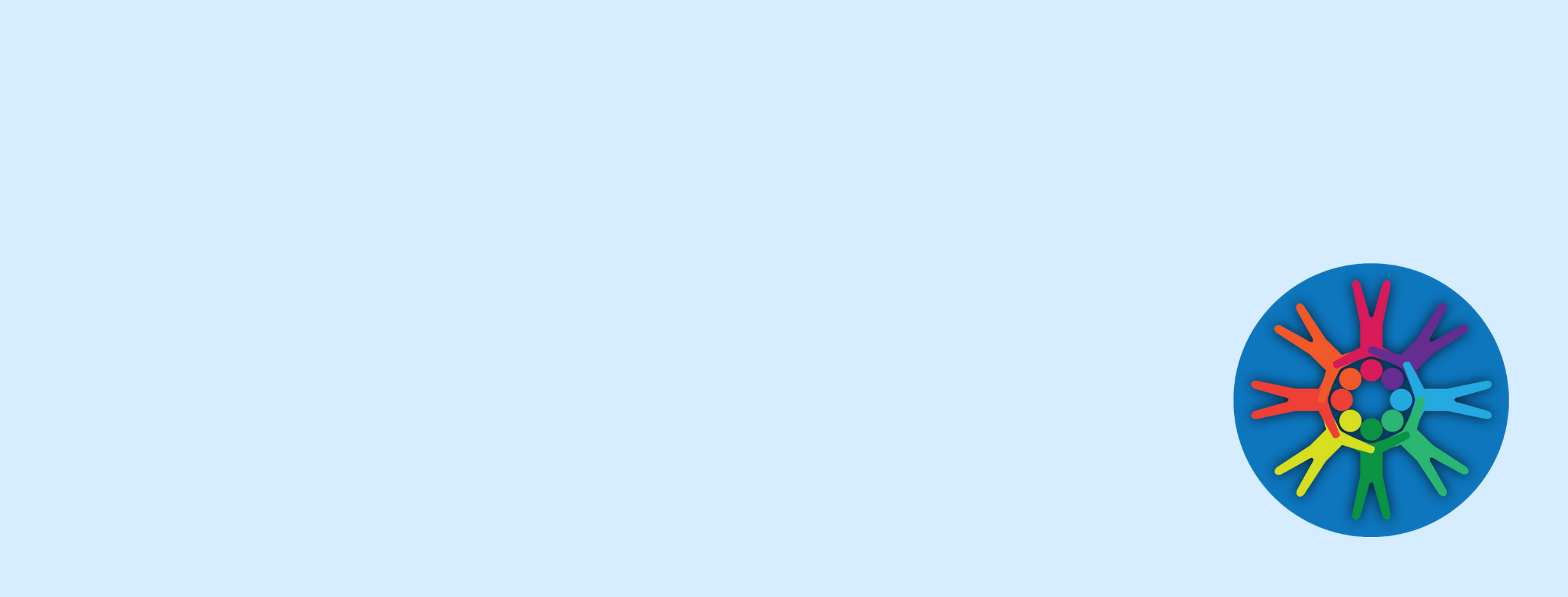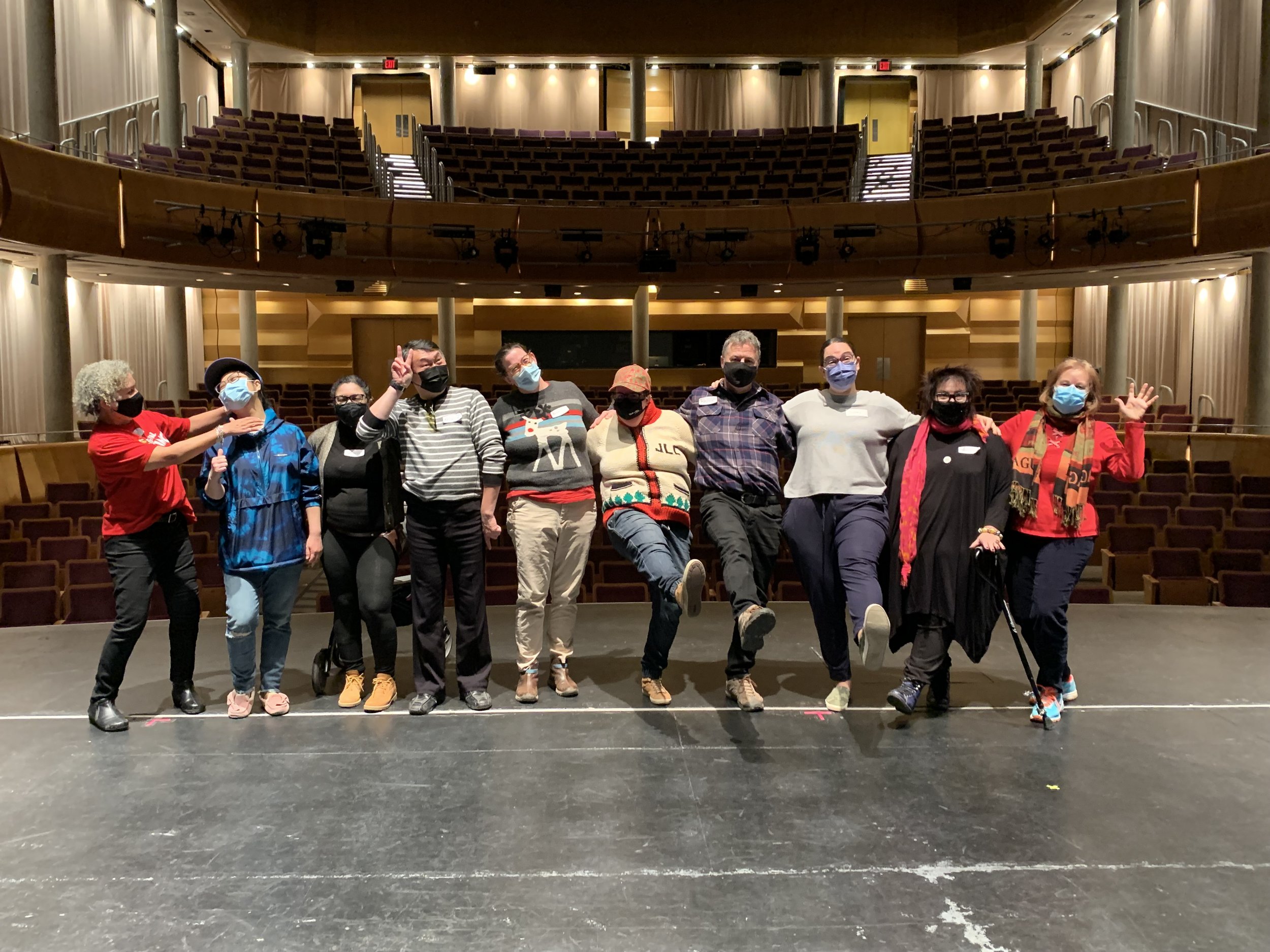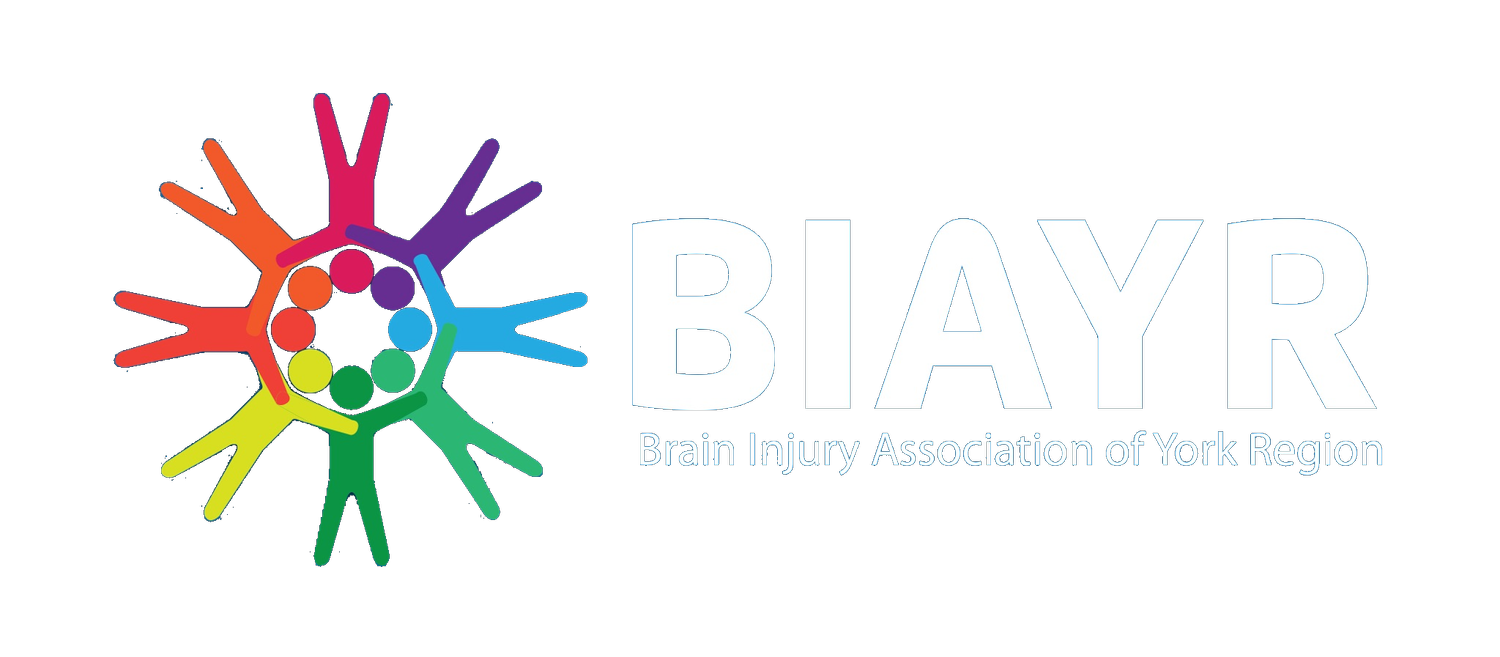
Helpful Links.
Brain Injury Associations
National:
Brain Injury Canada: Brain Injury Canada’s mission is to enhance the quality of life of individuals and families/caregivers living with brain injury in Canada. They facilitate post-trauma research, education, awareness and advocacy in partnership with national, provincial/territorial and regional associations and other stakeholders.
Provincial:
Ontario Brain Injury Association (OBIA): The Ontario Brain Injury Association is a provincial not-for-profit, charitable organization and their mission is to enhance the lives of Ontarians living with the effects of acquired brain injury through education, awareness and support..
Regional:
The Central Link ABI Resource Library: This resource library was developed in response to an identified need for greater clarity about the wide range of supports and services that are available to those living with an acquired brain injury (ABI) in the Central Ontario Health Region (focus is on York Region and South Simcoe, but many resources can be of benefit to those living outside of these areas). This resource is designed to assist persons with lived experience, as well as caregivers and professionals both within and outside the field of brain injury and considers the wide array of factors one may need to consider when returning to their community setting following a brain injury. The focus is on services that are fully or partially funded and that are in keeping with current clinical guidelines.
ABI System Navigator: Within Ontario there are 12 Acquired Brain Injury (ABI) System Navigator assigned to each of the 14 Local Health Integration Networks (LHINs). While their general role is to help survivors, caregivers and service providers access the various ABI services in their area, they are also involved in educating others on ABI and assisting in the development of collaborations between different service sectors such as mental health, addictions, justice, and housing. In addition they help to highlight the need for integrated care, particularly for those in need of more complex care, to provincial funders. Although they do not tend to provide direct support or case management, they are a valuable asset in terms of system navigation and capacity building. As funding differences do exist for this position from one LHIN to another, so does the extent of the Navigators’ involvement in these various roles. As such, you are encouraged to start your search for ABI services by speaking to the ABI service providers in your area. If you are having difficulties navigating the system, your LHIN ABI Navigator may be able to provide assistance with your specific need.
Within the Central LHIN, the Navigator is:
Cathy Halovanic
(416) 240-8000 x.755
navigator@chirs.com
Community-based Organizations and Programs
Central East Stroke Network: The Central East Stroke Network (CESN) is one of 11 stroke regions established across the province to provide leadership, development, implementation, and integration of stroke care throughout the region and across all points in the spectrum of care (promotion, secondary prevention, acute care, rehabilitation, and home care). They provide practical tools, information, resources and learning opportunities to implement and promote stroke best practices in CESN across the care continuum.
Community Head Injury Resource Services (CHIRS): CHIRS is a registered not-for-profit charitable organization whose mission is to improve the quality of life for persons living with the effects of Acquired Brain Injury by providing evidence-based community and client-centred services.
Community & Home Assistance to Seniors (CHATS): CHATS is a not-for-profit charitable organization that enhances health, wellness, and independence for York Region and South Simcoe seniors and caregivers.
Epilepsy York Region: Epilepsy York Region is a charitable organization which advocates on behalf of individuals with seizure disorders, promotes public awareness of epilepsy and seizure disorders, develops programs based upon the needs of our constituents, and provides educational resources and opportunities.
March of Dimes: March of Dimes Canada provides a wide range of services to people with physical disabilities throughout the country.
Ontario 211: Ontario 211 is a helpline and online database of Ontario’s community and social services.
Stronach Regional Cancer Centre at Southlake Regional Health Centre: -Individuals who have been diagnosed with a brain tumour can access their Community Hospice Programs. Information is available through their Patient and Family Resource Centre: pfrc@southlakeregional.org
Toronto ABI Network: The Toronto ABI Network helps hospitals and community-based programs connect people with Acquired Brain Injury to the services they need.
York District Stroke Council: A stroke council consisting of stroke community partners to create a collaborative approach for teams within York Region
York Region Homelessness Prevention Program: The Homelessness Prevention Program helps eligible York Region residents, who are homeless or at risk of homelessness not receiving Ontario Works or Ontario Disability Program benefits, to stabilize their housing.
York-Simcoe Brain Injury Services: York-Simcoe Brain Injury Services (partnership between Mackenzie Health and March of Dimes Canada)- provides case coordination, comprehensive functional behavioural assessment, individualized service treatment plan is developed with recommendations and community support to promote acquisition of skills and strategies for reintegration. Mackenzie Health, through York-Simcoe Brain Injury Services, also offers Adult Day Programs for people with acquired brain injuries at three locations within York Region.
York Support Services Network: York Support Services Network is a community-based agency that offers a range of case management and community crisis services, to support people with a developmental disability and/or a serious mental illness. YSSN also provides services within the Children’s Services Sector, offering Children’s Case Coordination.
Addictions Resources
Alcoholics Anonymous (AA): AA provide a point of contact between individual groups, their members, and the public by providing resources and information for those suffering from alcoholism.
Canadian Society of Addiction Medicine: Canadian Society of Addiction Medicine compiled a list of online resources for people with substance use disorders.
ConnexOntario: Information to connect with them is listed above under Mental Health Resources.
Narcotics Anonymous (NA): Narcotics Anonymous is a global, community-based organization that offers recovery from the effects of addiction through abstinence coupled with working a twelve-step program and regular attendance at group meetings.
Caregiver Resources
OBIA’s Caregiving after Brian Injury: An online education and training program provided by OBIA for caregivers of brain injury survivors.
The Ontario Caregiver Organization: The Ontario Caregiver Helpline provides caregivers with a one-stop resource for information and support.
1-833-416-2273 (CARE)
Concussion Resources
Ontario Neurotrauma Foundation: The Ontario Neurotrauma Foundation (ONF) is a non-profit organization funded by the Ontario government that works to prevent neurotrauma, and ensure Ontarians with spinal cord and brain injuries.
Pink Concussions: PINK Concussions is a non-profit organization to focus on pre-injury education and post-injury medical care for women and girls with brain injury including concussion incurred from sport, violence, accidents or military service.
Stop Concussions: The StopConcussions Foundation is a not-for-profit organization that has four main pillars: Prevention, Education, Management and Research. StopConcussions was designed to educate players, administrators, physicians, coaches and officials on the cause, effects and consequences of concussions and neurotrama injuries in all sports.
Financial and Legal Assistance Resources
CLEO Connect is a program of CLEO (Community Legal Education Ontario / Éducation juridique communautaire Ontario). CLEO Connect offers training, resources for adult educators, and other tools and resources for community workers and other trusted intermediaries who help low-income Ontarians with legal problems.
The Bright Futures Ability Network: The Bright Futures Ability Network prepared a newsletter to help people better understand the financial support available to them.
Financial Assistance for People with Disabilities (York Region): List of programs that provide financial assistance for people with physical and developmental disabilities.
Holland Bloorview’s List of Emergency Funding Sources: This tipsheet provides a list of governmental and non-governmental emergency funds and supports for families, in situations where they may need help urgently to pay for or find basic necessities.
York Region Library Resources
Markham Public Library: Whether you want to learn a new language, read an eBook or eAudiobook, stream an award-winning movie or enjoy a storytime with your little one, there’s a world of possibilities instantly available at your fingertips.
Newmarket Public Library: You can apply online for a temporary digital library card that will give you access to all of their resources, including Kanopy (independent films), RBdigital Magazines (many popular magazines), Freegal (songs and music videos), STEM Village (develop skills inScience, Technology, Engineering and Math), among other things.
Richmond Hill Public Library: In addition to online library resources, they have also developed Themed Activities for children, including Staying-In Safari.
Vaughan Public Libraries: You can apply online for a temporary digital library card that will give you access to their eBooks, eAudiobooks, and digital resources – including a Digital Escape Room.
Mental Health Resources
Anxiety Canada: A non-profit organization that raises awareness about anxiety supports access to proven resources and treatment. They developed the award-winning free MindShift™ CBT app for iOS and Android devices, which helps Canadians manage anxiety using scientifically proven strategies
Black Youth Helpline: Black Youth Helpline serves all youth and specifically responds to the need for a Black youth specific service, positioned and resourced to promote access to professional, culturally appropriate support for youth, families and schools.
ConnexOntario: ConnexOntario provides free and confidential health services information for people experiencing problems with alcohol and drugs, mental illness and/or gambling. Their information service is live-answer 24/7, confidential, and free.
eMentalHealth.ca: eMentalHealth.ca is a non-profit initiative of the Children’s Hospital of Eastern Ontario (CHEO) dedicated to improving the mental health of children, youth and families. eMentalHealth.ca provides anonymous, confidential and trustworthy information, 24 hours a day, 365 days a year.
Holland Bloorview Mental Health Supports: This tipsheet provides a listing of active mental health service providers and family mental health and wellness supports. Meditation and mindfulness apps and websites offering both free and fee-based content may also support the entire family during this uncertain time.
Kids Help Phone: Kids Help Phone is Canada’s only 24/7, national support service. They offer professional counselling, information and referrals and volunteer-led, text-based support to young people in both English and French.
LGBT Youth Line: Youth Line offers confidential and non-judgemental peer support through our telephone, text and chat services. Get in touch with a peer support volunteer from Sunday to Friday, 4:00PM to 9:30 PM.
The LifeLine Canada Foundation: The LifeLine Canada Foundation (also known as TLC) is a registered non-profit, committed to positive mental health and suicide prevention across Canada and Worldwide. TLC is not a crisis hotline.
MindBeacon: MindBeacon provides a Therapist Guided Program based in Cognitive Behavioural Therapy (CBT), Live Therapy Sessions, and online mental health information.
mindyourmind: mindyourmind is an online space where mental health, wellness, engagement and technology meet. They work with community partners and young people aged 14 to 29 to co-create interactive tools and innovative resources to build capacity and resilience.
Naseeha: Naseeha is a Mental Health Hotline that answers calls 7 days a week from around the world from Muslim and non-muslims. Naseeha Mental Health is a bridge for individuals who are going through life’s challenges. Naseeha provides a safe zone for youths and individuals to talk and get the help they need. They provide workshops to youth across North America, web therapy sessions, and offer texting mental health support 5 days a week.
Peer Support Canada: Peer Support Canada believes in the transformative power of peer support and offers certification for Peer Supporters, Family Peer Supporters, and for Peer Support Mentors. Peer Support Certification is a confirmation of one’s knowledge, skills, and experience as a peer supporter. Certification verifies one’s alignment with the nationally endorsed Standard of Practice, and is recognized across Canada.
Togetherall: Togetherall is an online service providing access to peer-to-peer support for those with anxiety, depression and other common mental health issues.
Trans Lifeline: Trans Lifeline is a trans-led organization that connects trans people to the community, support, and resources they need to survive and thrive.
Wellness Together Canada: Free mental health and substance use online tools and resources.
Wellness Resources
Love Your Brain: Love Your Brain is a not-for-profit organization that improves the quality of life of people affected by traumatic brain injury through programs that incorporate yoga, mindfulness, and community.
Together in Movement and Exercise (TIME™): Exercise and Wellness Videos for People with Mobility Challenges
Miscellaneous Resources
211 Central: Priority services that are available during the COVID-19 pandemic, including food banks, food delivery, housing support, and mental health support.
Good Neighbour Project: Delivery assistance for groceries and supplies
Helpline: 647-873-223
Email: info@goodneighbourproject.com
Steps to Justice: Legal assistance for Ontario residents.
Warm Line & Peer Crisis Support: Non-crisis and crisis live support for those living in York Region.
York Region Food Network: York Region Food Network connects residents to good food in spaces that are welcoming, inclusive and respectful.

